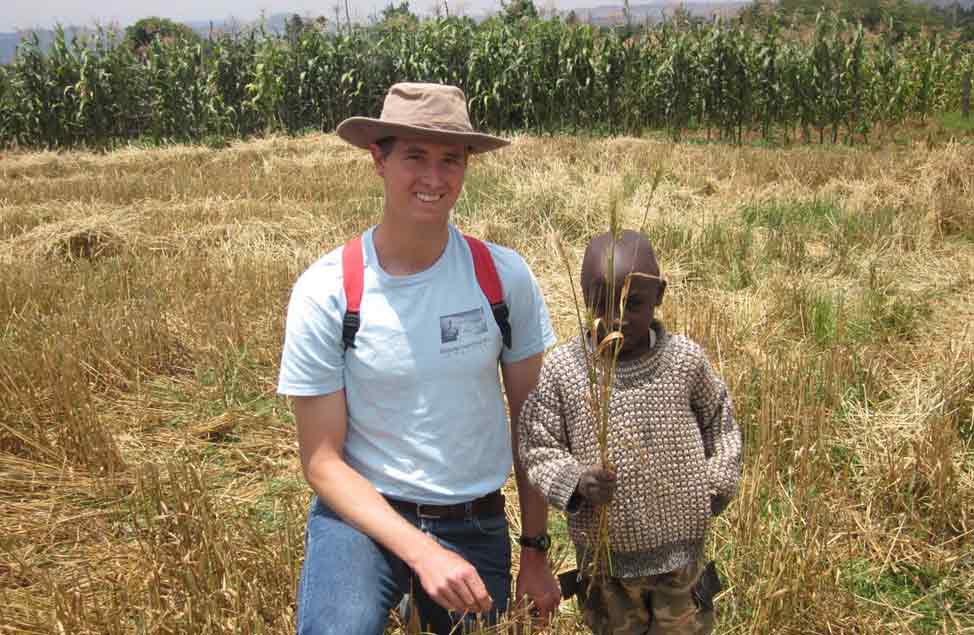
Nutrition and Food Security
[vc_row css=”.vc_custom_1545557935225{padding-top: 5px !important;}”][vc_column][vc_column_text]
Nutrition and Food Security
[/vc_column_text]
Improving Nutrition & Food Security
[/vc_column_text][vc_empty_space height=”15px”][vc_column_text css_animation=”fadeIn”]ROA’s Food Security and Nutrition Improvement Program was launched in the context of one of the Kenya’s worst droughts. 4 million people were in dire need of food aid and malnutrition was rampant, especially among young children.
The core strategy of this program lies in decreasing the dependency on external food supplies by encouraging the production, consumption and marketing of local produce. To get communities on board with a deeper understanding of food security at a household level ROA launched a variety of educational initiatives informing on indigenous vegetables and micro-nutrient deficiency.
Through its nutritional program, ROA promotes the cultivation of African Leafy Vegetables (ALVs) as an important source of micro-nutrients and income for smallholder farmers. They are in their hundreds in Africa. The most common varieties in Kenya include African Nightshade (managu), amaranthus (terere), spider plant (saget) and slender leaf (mitoo) among other popular traditional vegetables.
ROA’s Food Security and Nutrition Improvement Program saw a reduction of food insecurity from 73% to 30% and underweight of under-fives plummet from 15% to 5%.[/vc_column_text][vc_empty_space height=”25px”]
Projects
[/vc_column_text][/vc_column_inner][vc_column_inner width=”1/3″ css=”.vc_custom_1562528154269{padding-top: 0px !important;padding-right: 0px !important;padding-bottom: 0px !important;padding-left: 0px !important;}”][/vc_column_inner][vc_column_inner width=”1/3″][/vc_column_inner][/vc_row_inner][vc_row_inner css=”.vc_custom_1562580796389{padding-top: 25px !important;}”][vc_column_inner width=”1/3″][vc_single_image image=”20145″ img_size=”large” style=”vc_box_rounded”][/vc_column_inner][vc_column_inner width=”2/3″][vc_column_text]

[/vc_column_text][vc_column_text]
African Leafy Vegetables (ALVs) Project
[/vc_column_text][vc_empty_space height=”15px”][vc_column_text]The project mainly concentrated on Corchorus olitorus (Jews-mallow) Crotaloria brevidens (Sun hemp), Gynadropsis gyanandra (black nightshade), Amaranths ssp (amaranths) and Vigna ungiculata (Cowpeas). An impact assessment in the last year of the project revealed that 70% of the project beneficiaries were women, and 12% youth farmers.[/vc_column_text][vc_empty_space height=”15px”] Read More [vc_empty_space height=”35px”][/vc_column_inner][/vc_row_inner][vc_row_inner css=”.vc_custom_1562580796389{padding-top: 25px !important;}”][vc_column_inner width=”1/3″][vc_single_image image=”19788″ img_size=”large” style=”vc_box_rounded”][/vc_column_inner][vc_column_inner width=”2/3″][vc_column_text]
ALVs Marketing Campaign with JJ Foundation (UK)
[/vc_column_text][vc_empty_space height=”15px”][vc_column_text css_animation=”fadeIn”]ROA in partnership with JJ Foundation of United Kingdom works to introduce and scale up the production of indigenous vegetables and their use as a source of micro-nutrients among farmers and their families, improve the income levels of the beneficiary farmers by training them in marketing and facilitating the development of an efficient marketing system targeting both local and outside markets.
ROA also involves valuable stakeholders in the production and utilization of a recipe manual therefore enhancing the usability of indigenous vegetables. We ensure that farmers and consumers in other parts of Kenya also benefit from the project through the provision of quality seeds and both fresh and solar dried vegetables for outside markets. [/vc_column_text][vc_empty_space height=”35px”][/vc_column_inner][/vc_row_inner][/vc_column][/vc_row][vc_row content_aligment=”center” css=”.vc_custom_1562580844276{padding-top: 60px !important;padding-bottom: 0px !important;}”][vc_column][vc_column_text]
JOIN US!
[/vc_column_text]
[/vc_column_text][/vc_column][/vc_row]




